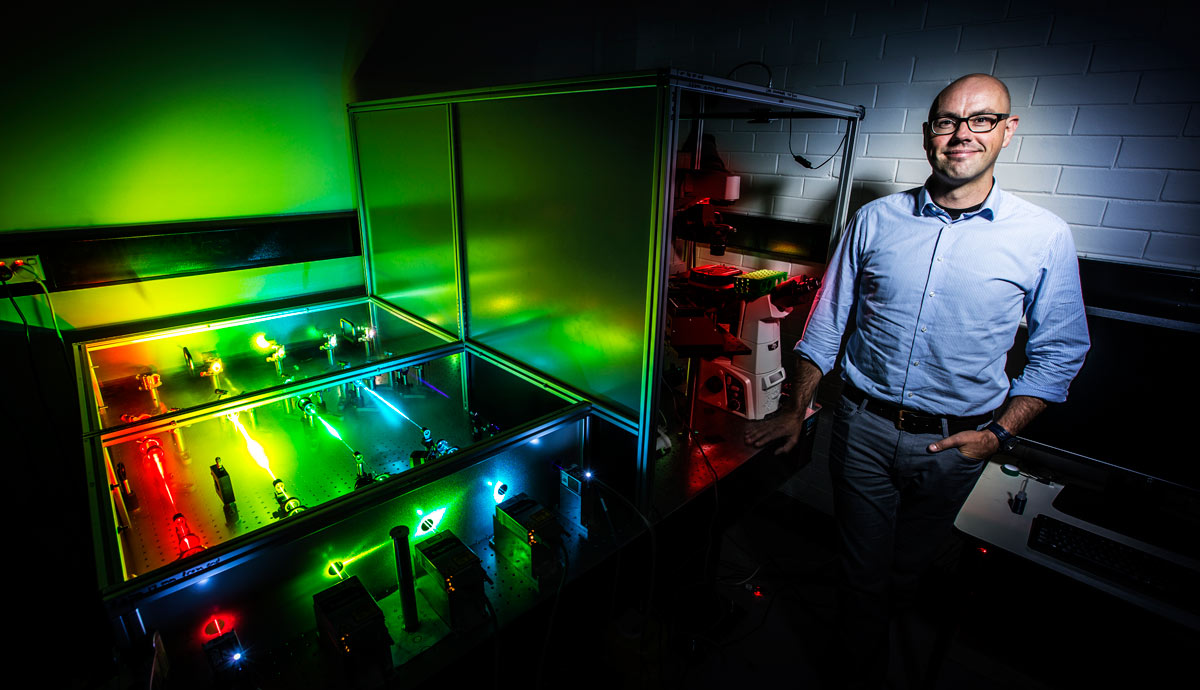June 22, 2017
UOW instigates Australia-wide initiative on antimicrobial resistance
Summit takes a holistic approach to tackling global health challenge.
What do you do when diseases outgrow and outsmart the medicine that is supposed to stop them?
Antimicrobial resistance is one of the great health challenges facing the world today. Antimicrobials, such as antibiotics, have transformed human health and saved millions of lives.
However their widespread use has led to the emergence of antimicrobial resistance that poses a potentially catastrophic threat to public health.
A UK government report projects that antimicrobial-resistant infections could lead to at least 10 million additional deaths per year and cost the global economy up to US$100 trillion by 2050.
The University of Wollongong’s strategic research initiative, Global Challenges, will bring together experts from a variety of disciplines for an antimicrobial resistance summit on 26-27 June that will explore ways to collectively tackle the problem.
Distinguished Professor Antoine van Oijen, an Australian Research Council Laureate Fellow from the Faculty of Science, Medicine and Health, is part of an interdisciplinary team of UOW researchers from chemistry, psychology, education, medicine, nursing and biological sciences who are looking at ways to address antimicrobial resistance.
“There is a need to address this challenge in a holistic, integrative fashion,” Professor van Oijen said.
“Antimicrobial resistance is an urgent and truly global challenge that will require concerted action by research scientists, health practitioners, policy makers, engineers, business leaders, educators and many others.
“Advances will need to be made by researchers not just in developing new drugs and point-of-care diagnostics, but also involving media and communication experts thinking of new ways to better educate people about antibiotics, economists studying cooperative mechanisms between government and big pharma, nursing researchers developing best practices, environmental researchers finding ways to remove antibiotics from wastewater and more.”
The summit includes a one-day workshop on Monday 26 June, “Breaking Bad Biotics”, that will bring together research scientists, health practitioners, policy makers, engineers, business leaders, educators and others with expertise in different aspects of antimicrobial resistance.
It will be followed on Tuesday 27 June by a day of intensive discussion with a smaller group of experts, who will define strategies for a collective effort to tackle the problem.
A public lecture on the evening of 26 June, presented by leading antimicrobial resistance expert Professor Jon Iredell from the University of Sydney and Westmead Hospital, will give the Illawarra community the opportunity to learn more about the issue and how we as a society need to respond.
The lecture will be followed by a Q&A session with a panel of experts answering questions from the audience.
The panel will be moderated by Professor van Oijen and will include Professor Iredell, infectious disease specialist Associate Professor Spiros Miyakis (UOW, Wollongong Hospital), Illawarra Shoalhaven Local Health District Health Director Mr Curtis Gregory, and Ms Liesl McCoy from NPS MedicineWise.
